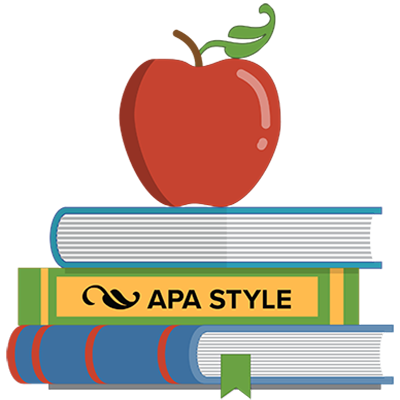

Welcome to the APA Style website! This page is your gateway to getting started with APA Style, the writing style that helps you communicate clearly, precisely, and inclusively.
Everything on this site comes from the official source of APA Style, the American Psychological Association.
Let’s begin with a video orientation to the APA Style website that covers all the free resources it has to offer, including detailed style and grammar guidelines, sample papers and references, and the APA Style blog.
Then check out some frequently asked questions:
APA Style is the most common writing style used in college and career. Its purpose is to promote excellence in communication by helping writers create clear, precise, and inclusive sentences with a straightforward scholarly tone. It addresses areas of writing such as how to
APA Style is primarily used in the behavioral sciences, which are subjects related to people, such as psychology, education, and nursing. It is also used by students in business, engineering, communications, and other classes. Students use it to write academic essays and research papers in high school and college, and professionals use it to conduct, report, and publish scientific research.
High school students need to learn how to write concisely, precisely, and inclusively so that they are best prepared for college and career. Here are some of the reasons educators have chosen APA Style:
High school students may also be interested in the TOPSS Competition for High School Psychology Students, an annual competition from the APA Teachers of Psychology in Secondary Schools for high school students to create a short video demonstrating how a psychological topic has the potential to benefit their school and/or local community and improve people’s lives.
Most people are first introduced to APA Style by reading works written in APA Style. The following guides will help with that:
Reading resource
Details
Handout explaining how journal articles are structured and how to become more efficient at reading and understanding them
Handout exploring the definition and purpose of abstracts and the benefits of reading them, including analysis of a sample abstract
Many people also write research papers or academic essays in APA Style. The following resources will help with that:
Writing resource
Details
Guidelines for setting up your paper, including the title page, font, and sample papers
More than 100 reference examples of various types, including articles, books, reports, films, social media, and webpages
Handout comparing example APA Style and MLA style citations and references for four common reference types (journal articles, books, edited book chapters, and webpages and websites)
Handout explaining how to understand and avoid plagiarism
Checklist to help students write simple student papers (typically containing a title page, text, and references) in APA Style
Handout summarizing APA’s guidance on using inclusive language to describe people with dignity and respect, with resources for further study
Free tutorial providing an overview of all areas of APA Style, including paper format, grammar and usage, bias-free language, punctuation, lists, italics, capitalization, spelling, abbreviations, number use, tables and figures, and references
Handout covering three starter areas of APA Style: paper format, references and citations, and inclusive language
Instructors will also benefit from using the following APA Style resources:
Instructor resource
Details
Recording of a webinar conducted in October 2023 to refresh educators’ understanding of the basics of APA Style, help them avoid outdated APA Style guidelines (“zombie guidelines”), debunk APA Style myths (“ghost guidelines”), and help students learn APA Style with authoritative resources
Recording of a webinar conducted in May 2023 to help educators understand how to prepare high school students to use APA Style, including the relevance of APA Style to high school and how students’ existing knowledge MLA style can help ease the transition to APA Style (register for the webinar to receive a link to the recording)
Recording of a webinar conducted in September 2023 to help English teachers supplement their own APA Style knowledge, including practical getting-started tips to increase instructor confidence, the benefits of introducing APA Style in high school and college composition classes, some differences between MLA and APA Style, and resources to prepare students for their future in academic writing
Poster showing the three main principles of APA Style: clarity, precision, and inclusion
A 30-question activity to help students practice using the APA Style manual and/or APA Style website to look up answers to common questions
In addition to all the free resources on this website, APA publishes several products that provide comprehensive information about APA Style:
Product
Details
The official APA Style resource for students, covering everything students need to know to write in APA Style
The official source for APA Style, containing everything in the Concise Guide plus information relevant to conducting, reporting, and publishing psychological research
APA Style’s all-digital workbook with interactive questions and graded quizzes to help you learn and apply the basic principles of APA Style and scholarly writing; integrates with popular learning management systems, allowing educators to track and understand student progress
APA’s online learning platform with interactive lessons about APA Style and academic writing, reference management, and tools to create and format APA Style papers
The APA Style team is interested in developing additional resources appropriate for a beginner audience. If you have resources you would like to share, or feedback on this topic, please contact the APA Style team.
Subscribe to the APA Style Monthly newsletter to get tips, updates, and resources delivered directly to your inbox.
Welcome! Thank you for subscribing.